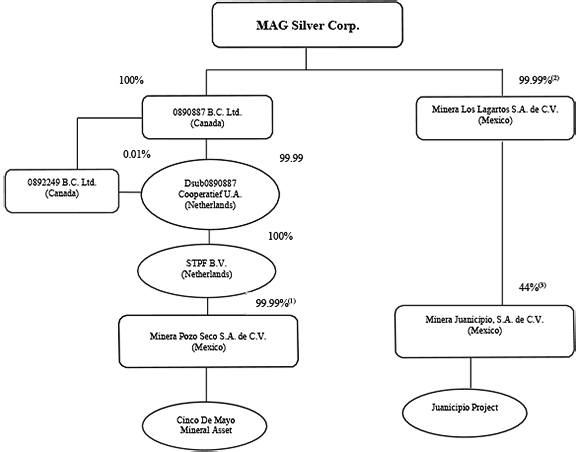The volatile global economic environment has created market uncertainty and volatility in recent years. Recent negative trends and periods of instability in the market for metal commodities and related products as a result of global economic uncertainty, reduced confidence in financial markets, bank failures and credit availability concerns have been experienced in recent years. These macro-economic events negatively affected the mining and minerals sectors in general, and the Company’s market capitalization has been volatile and significantly reduced in periods of market instabilities. Many industries, including the mining industry, are impacted by these market conditions. Global financial conditions remain subject to sudden and rapid destabilizations in response to economic shocks. A slowdown in the financial markets or other economic conditions, including but not limited to consumer spending, employment rates, business conditions, inflation, fuel and energy costs, consumer debt levels, lack of available credit, the state of the financial markets, interest rates and tax rates, may adversely affect the Company’s growth and profitability. Future economic shocks may be precipitated by a number of causes, including the ongoing European debt situation, world health pandemics, a significant rise or significant decrease in the price of oil and other commodities, the volatility of metal prices, geopolitical instability, terrorism, the devaluation and volatility of global stock markets and natural disasters. Any sudden or rapid destabilization of global economic conditions could impact the Company’s ability to obtain equity or debt financing in the future on terms favorable to the Company or at all. In such an event, the Company’s operations and financial condition could be adversely impacted.
There are no assurances with respect to the relative strength and stability of future metal markets. The Company’s liquidity and ability to raise the capital required to execute its business plans may be affected by market volatilities.
The Company’s future profitability and the viability of development depends in part upon the world market price of silver, and to a lesser extent other metals including gold, lead, zinc and copper. Prices fluctuate widely and are affected by numerous factors beyond the Company’s control. The price of silver is influenced by factors including industrial and retail supply and demand, exchange rates, inflation rates, changes in global economies, confidence in the global monetary system, forward sales of silver and other metals by producers and speculators as well as other global or regional political, social or economic events. The supply of silver and other metals consists of a combination of new mine production and existing stocks held by governments, producers, speculators and consumers, which could increase due to improved mining and production methods.
Prices and availability of commodities consumed or used in connection with exploration and development and mining, such as natural gas, diesel, oil and electricity, also fluctuate, and these fluctuations affect the costs of production at various operations. These fluctuations can be unpredictable, can occur over short periods of time and may have a material adverse impact on the Company’s operating costs or the timing and costs of various projects.
The Company assesses on a quarterly basis the carrying values of its mineral properties. Should market conditions and commodity prices worsen and persist in a worsened state for a prolonged period of time, an impairment of the Company’s mineral properties may be required.
Virus outbreaks may create instability in world markets and may affect the Company’s business.
The current outbreak of COVID-19 that was first reported in Wuhan, China on December 31, 2019, and any future emergence and spread of similar pathogens, could have an adverse impact on global economic conditions which may adversely impact the Company’s operations, and the operations of the Company’s suppliers, contractors and service providers and may negatively impact future fiscal periods in the event of prolonged disruptions associated with the outbreak. The Chinese market is a significant source of global demand for commodities, including silver, gold and other metals. A sustained slowdown in China’s growth or demand, or a significant slowdown in other markets, in either case, that is not offset by reduced supply or increased demand from other regions could have an adverse effect on the price and/or demand for the Company’s products. COVID-19 and efforts to contain it, including restrictions on travel and other advisories issued may have a significant effect on metal prices and demand in China and other markets and potentially broader impacts on the global economy.
In response to the COVID-19 virus outbreak, the Mexican Government ordered a temporary suspension of all “non-essential” operations nationwide in Mexico, including mining operations, until May 30, 2020. The Company understands that Fresnillo, the operator of Juanicipio, has been in regular consultation with Mexican Government officials to determine the most appropriate compliance approach while attempting to minimize the overall impact on project development. Fresnillo has advised the Company that to date, surface exploration and construction work at Juanicipio has been temporarily stopped, and the underground operation has been temporarily reduced to a minimum working level under rigid hygienic protocols. These changes could have a material adverse impact on the Company as it could result in delays in the development timeline and increased costs. Any such delays could result in the failure to meet the previously announced timetable for beginning production and processing at Juanicipio. In addition, Mexican authorities could impose new or additional requirements resulting in further limitations on the activities, or the suspension of all activities, at Juanicipio. Alternatively, in the event of an outbreak of COVID-19 at Juanicipio, Fresnillo could determine that a full suspension of all of its operations is necessary for the safety and protection of the workers. A complete suspension of underground development at Juanicipio beyond the current reduced operations could result in further delays in the development of the project, result in additional increases in costs and have a material adverse effect on the financial position of the Company. If Mexican authorities were to extend the suspension order caused by the COVID-19 virus outbreak beyond May 2020, or if there a full suspension of underground development at Juanicipio for an undefined period of time there could be additional medical and other costs to be incurred, project delays, cost overruns, and operational restart costs. The total amount that the Company is required to finance in order to maintain its proportionate ownership in the project may increase from these and other consequences of the COVID-19 outbreak.
Emerging climate change regulations could result in significant costs and climate change may present result in physical risks to a mining company’s operations.
Governments are moving to introduce climate change legislation and treaties at the international, national, state/provincial and local levels. Regulations relating to emission levels (such as carbon taxes) and energy efficiency are becoming more stringent. If the current regulatory trend continues, the Company expects that this could result in increased costs at its operations. In addition, the physical risks of climate change may also have an adverse effect on the Company’s operations. These physical risks include changes in rainfall rates, rising sea levels, reduced water availability, higher temperatures, increased snowpack and extreme weather events. Such events could materially disrupt the Company’s operations if they affect the Juanicipio Project site, impact local infrastructure or threaten the health and safety of the Company’s employees and contractors. Therefore, such an event could result in material economic harm to the Company.
12


